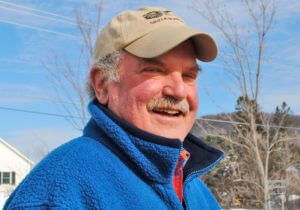Out Take

Well, come on all of you big, strong men,
Uncle Sam needs your help again
He got himself in a terrible jam
Way down yonder in Vietnam
So put down your books and pick up a gun,
We’re gonna have a whole lotta fun.
~ Country Joe and the Fish, “I Feel Like I’m Fixin’ to Die”
I admit that I watched all the sessions of Ken Burns and Lynn Novick’s Vietnam history. A young adult of the 1960s, I was there during the war and played a small a part in “Rolling Thunder” on an aircraft carrier bombing the north.
But that was not the reason I found the series fascinating. My fascination stemmed from the in-depth coverage of the absurdity of what and how we carried out our supposed mission and the fact that we who were directly involved never heard the complete story, particularly about those from my ship, mostly pilots, who died as we bombed Hanoi. We lost 12 planes in the time I was on the “Bonnie Dick” either on Yankee Station or off Hainan Island.
The irony in Country Joe McDonald’s bottom line above hits it on the head. The pilots on my ship usually got together after their missions and talked about how they felt. I would attend these meetings. They often described their evasions from enemy fire as if they were games. They smiled and joked about dodging missiles. They described it as a sporting event. It seemed to be their version of a touchdown run. (Sports, from dropping bombs to catching passes, seem to be tied together in this country at levels from high school through college through pros as we begin each game with a military color guard. Games or war, we can’t seem to differentiate.)
A friend on board said he thought that a number of these pilots had been on high school football teams and never quite made it to the college ranks, so they became bomber pilots and fulfilled their desires to be sports heroes. I was never certain whether they really believed what they said, but it kept them going back for more. Air strikes also took the human element out of the picture. These planes were dropping bombs from thousands of feet up and never really seeing the people they killed. Only when they themselves were shot down did humanity enter their conscience.
I can remember listening to one our pilots on his radio after he was shot out of his plane over North Vietnam. He was not injured, because the bullet hit his ejection seat, and his first radio communication described in very unemotional terms what he saw on the ground where he was going to land—including the NVA soldiers waiting for him. When he realized he was about to be captured, his talk suddenly turned maudlin, as if all at once he knew he was about to come in contact with people he had been shooting at and who cared less about his life and more about their own and their friends and comrades he had killed.
One minute he was up in the air. The next minute he was landing in an enemy-held rice patty. It was this sort of real-life war experience, the human side of what our politicians only talked about in inhuman terms, something only those who were in Nam experienced first hand, that kept what soldiers went through a real mystery. Most often they did not share it directly with those to whom they returned. However, when they did, it often cropped up in the returnee’s psyche and behavior. And people on the home front, at least those who did not experience it themselves, often failed to recognize it as Nam fallout.
Burns and Novick help make the connection between the Mekong Delta and life on the streets of Chicago. How many times in the film did we hear Johnson, Nixon, McNamara and other Washington jerks tell us that we were winning a war and we should keep pouring young citizens into it (unless you suffered near-death injuries like bone spurs or if you managed to sneak into the Air National Guard). However, those closest to it probably did sense the danger and the gut-wrenching terror of knowing that with the next step they could end in claymore Heaven.
In his book The Things They Carried, Tim O’Brien combines physical objects with the psychological baggage that war buries in those fighting it and which they carry with them if they are fortunate enough to live beyond their terms of duty. He says that generalizing about war is like generalizing about peace. “Almost nothing is true.” Ironically, however, he says that one is never more alive than when they are nearly dead. “After a firefight, there is always the immense pleasure of aliveness.”
For others, Nam was a cancer. Once there, it was a death knell; they didn’t come home. One of the elements in Burns and Novick’s series was their ability to bring the personal tragedies on both sides into focus. For the individuals involved on the battlefields, war is senseless. Their own lives are all that are at stake, and as they see their friends fall, they immediately pull out their “short-timer calendars” and begin x-ing out the days. For too many the tragedy occurred, and they missed the last x.
Related Stories
Popular Stories
If you enjoy The Charlotte News, please consider making a donation. Your gift will help us produce more stories like this. The majority of our budget comes from charitable contributions. Your gift helps sustain The Charlotte News, keeping it a free service for everyone in town. Thank you.
Andrew Zehner, Board Chair









